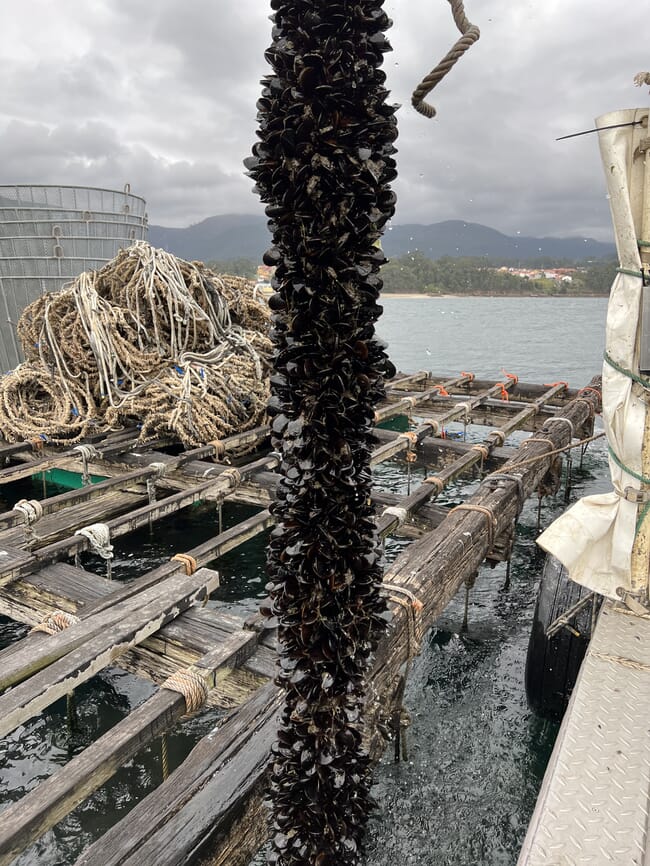
Galicia produces an astonishing 250,000 tonnes of Mediterranean mussels – accounting for almost half of the 600,000 tonnes of the bivalves consumed in Europe each year
Part of the European SEATRACES projects, it was developed using the genetic profile of the Mediterranean mussel species Mytilus galloprovincialis, identifying its specific genetic markers. It offers producers and expert researchers a powerful genomic tool to identify, validate and assess complex genetic traits in this species.
World aquaculture production of mussels reached 2.11 million tonnes in 2018, with an approximate value of USD $4.5 billion, according to figures published in 2020 by the United Nations Food and Agriculture Organisation (FAO). In the European Union, these molluscs represent 34 percent of total aquaculture production. Galicia, responsible for over 97 percent of the aquaculture in Spain, is the leading producer among EU countries of one of the two main species, Mytilus galloprovincialis.
Guaranteeing origin and traceability is especially important in the case of mussels due to their importance in international trade and the long distances between where they are produced and consumed.
As part of the European SEATRACES project, led by the CSIC, with the aim of improving geographical identification of mussels, enhancing its management and preventing possible food fraud, the AZTI technology centre has led research consisting of a genetic study to analyse over 200 samples of mussels of different geographical origins.
In total, using next generation sequencing techniques, researchers identified 17 specific markers, making it possible to distinguish the geographical origin of the mussels highly accurately.
On the basis of these markers, researchers at AZTI worked together with the University of Santiago de Compostela (USC) to develop a genetic chip with the genetic profile of Mytilus galloprovincialis, offering producers and expert researchers a powerful genomic tool to identify, validate and assess complex genetic traits in this species.
The results are important to understand the genetic dynamics of cultivated mussel populations and assess the effectiveness of handling and selection processes in aquaculture. They also provide valuable information to develop conservation and genetic improvement strategies for this species.
"Tracing the geographical origin of this species is crucial to developing and implementing management strategies to mitigate invasion and protect the sustainable exploitation of native species," explains Ana del Río, an AZTI researcher and expert in food integrity.
The ability to accurately identify the geographical origin of mussels, as well as being very important for the sustainable management of aquaculture and fisheries, also has implications for both producers and food authorities and consumers.
"Producers can use these genetic markets to certify the origin of their products and boost consumer confidence. For their part, food authorities can use this information to ensure compliance with traceability and food safety regulations," adds del Río.



